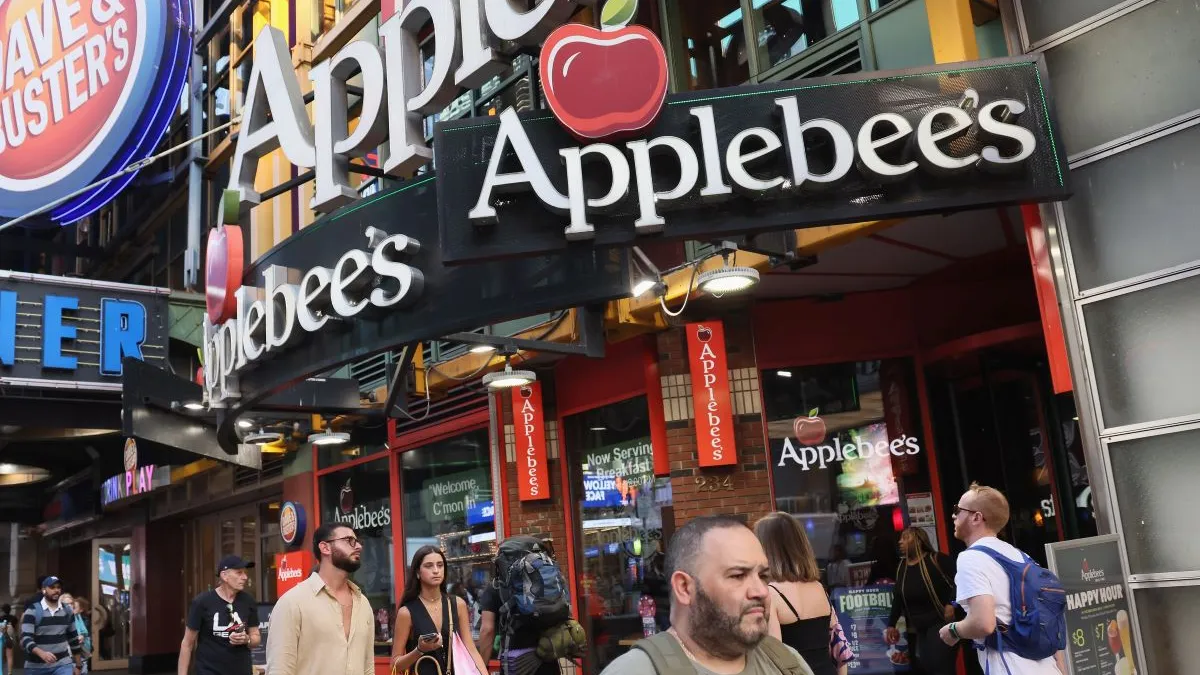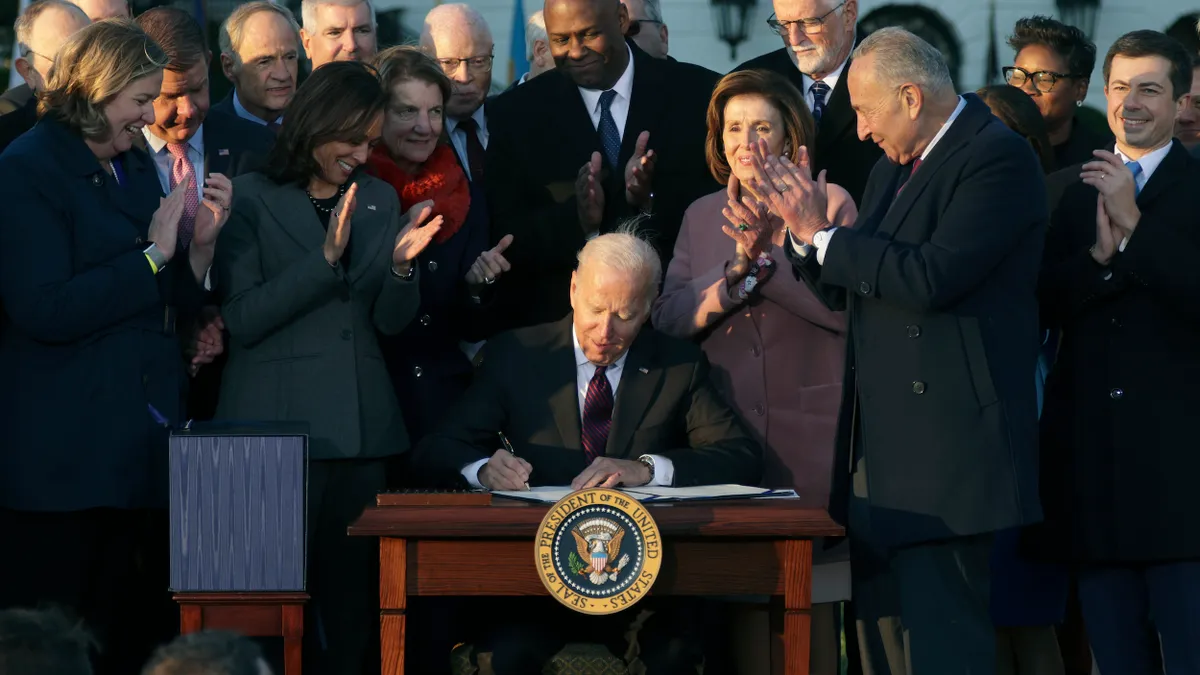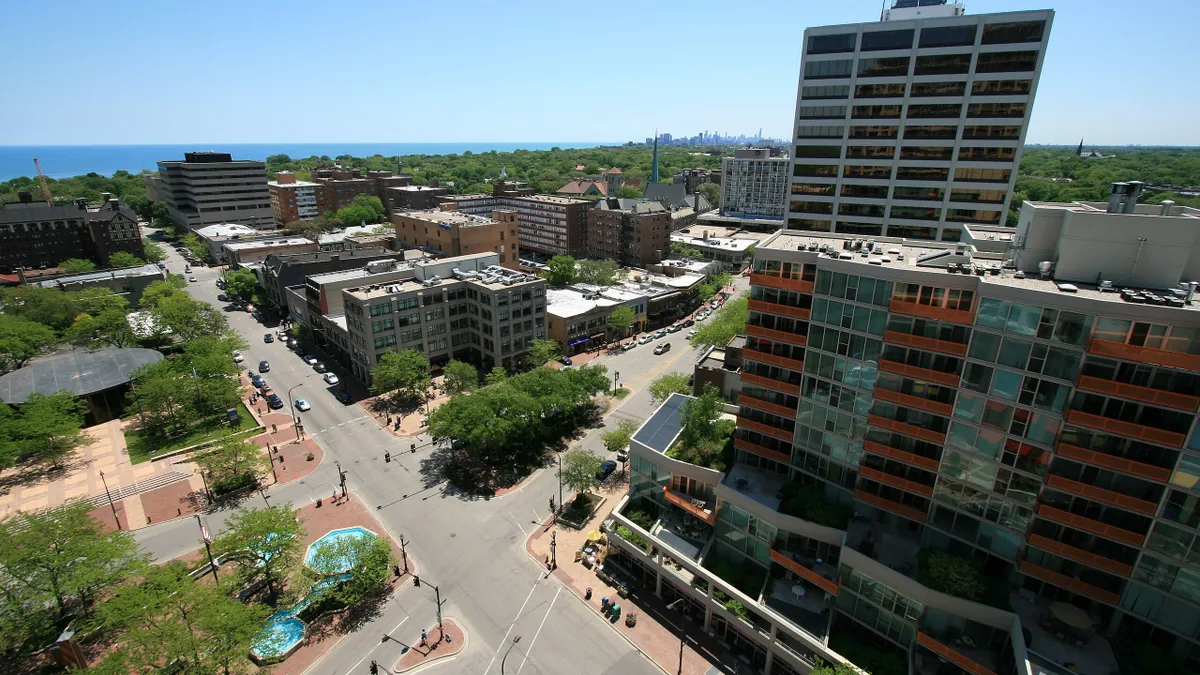Air conditioning is a hot topic this summer.
As temperatures rise to record-breaking levels in the U.S. and abroad, cities have scrambled to increase access to cooling centers while power grids face strain from air conditioning demands. In some places, the need for air conditioning has probably never been greater, but emissions from these systems and pollution from refrigerants are key contributors to the global warming that’s exacerbating heat waves in the first place.
It was that vision of a warming future — and the reality that climate goals cannot be reached without a reduction in building emissions — that spurred heat pump company Gradient into business in 2017, according to co-founder and CEO Vince Romanin. Heat pumps are energy-efficient units that use electricity to transfer heat, and can act as either a heating or cooling system depending on the season.
Gradient sells to both consumers and businesses, and the San Francisco startup was just awarded a seven-year contract to manufacture 10,000 units for use in New York City public housing facilities. It won the contract through the New York City Housing Authority, New York Power Authority and New York State Energy Research and Development’s Clean Heat for All Challenge — a heating and cooling industry competition to reduce fossil fuel dependency by developing electric heating sources that serve the needs of existing multifamily buildings.
In an interview with Smart Cities Dive, Romanin discussed how public awareness and demand for building electrification has come to the fore.
This interview has been edited for clarity and brevity.
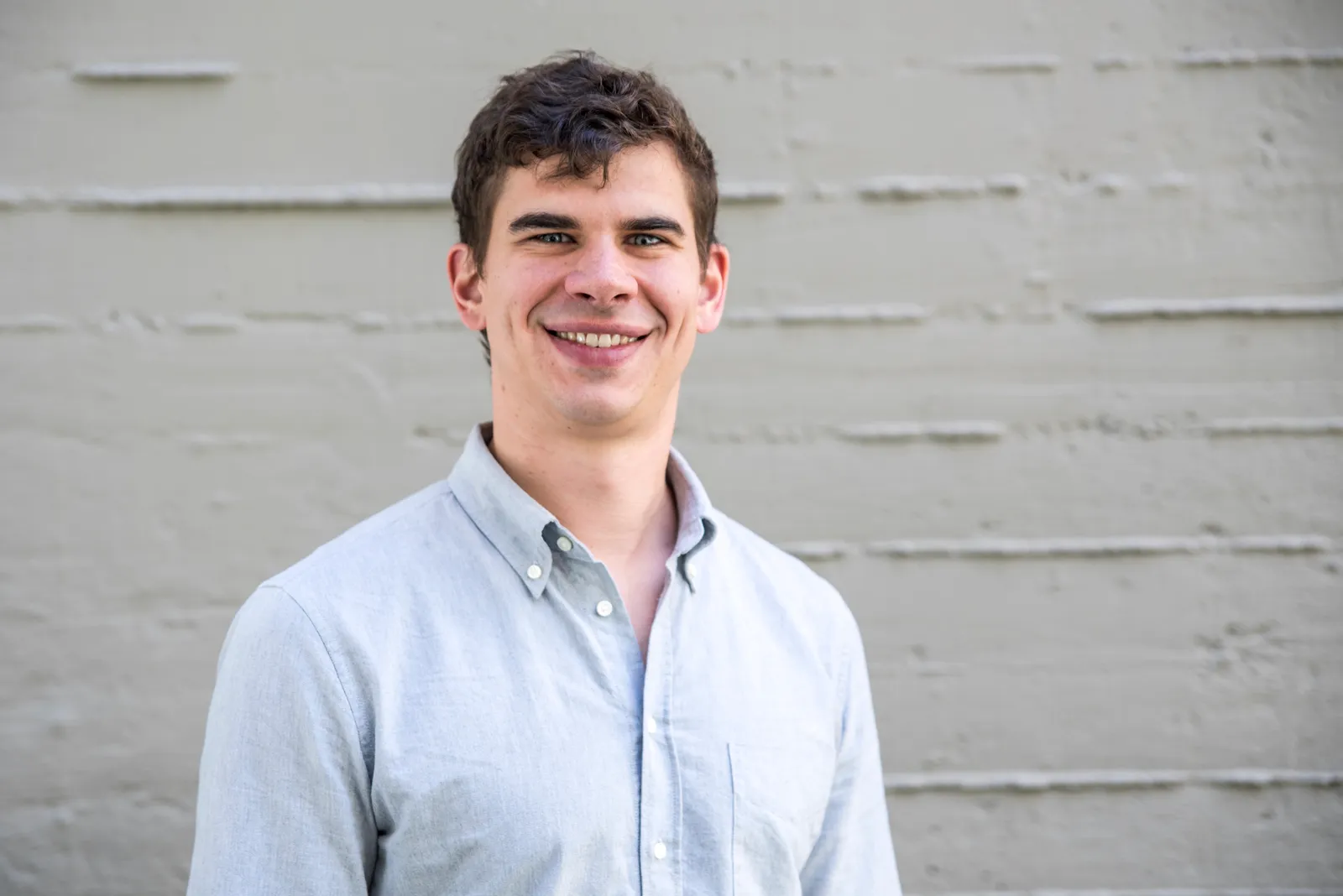
SMART CITIES DIVE: How has this market changed since Gradient was founded?
Vince Romanin: If there's one single largest thing that has changed it’s that people know what heat pumps are.
Consumers are more interested in supporting companies who have a mission, who are doing something more positive. And investors are focused on cleantech — they're focused on companies that are also better for the world. I think people realize … we need healthy, thriving communities or we can’t have healthy, thriving businesses.
And that has resulted in the conversation around climate really being at the forefront, which has shifted to a conversation around how we electrify our buildings, which has led people to understand what heat pumps are and talk about that. So we went from having to explain to people why we were doing HVAC, what a heat pump actually is, and why it’s important to the climate, to people looking for heat pumps.
What factors do you credit most for that heat pump awareness?
I think it was definitely a little bit of everything.
We started the company saying that if we're going to [put billions] more air conditioners on the planet, we need to make sure that those air conditioners are also heat pumps. You can kind of kill two birds with one stone, for lack of a better word, if you give someone an air conditioner but also remove their furnace at the same time.
- The heat wave in the Pacific Northwest made a lot of people who didn't have AC to want to buy one. So they became interested in heat pumps.
- NYCHA, having Hurricane Ida take out a lot of their infrastructure, said, ‘if we're going to upgrade our heating system, we might as well give people access to cooling at the same time.’
- Europe, seeing a heat wave a couple of years ago that killed [thousands of] people in France, was a wake-up call that their infrastructure needed to be updated and that they needed to reduce carbon emissions at the same time. And so the solution is to deploy air conditioners that are also heat pumps.
- And then lastly, Russia's invasion of Ukraine has led Europe to push to get off of natural gas and the solution to getting buildings off of gas is heat pumps.
So I think it is people seeing the very real effects of climate change, things like heat waves and hurricanes, and I think it is increased action toward climate change.
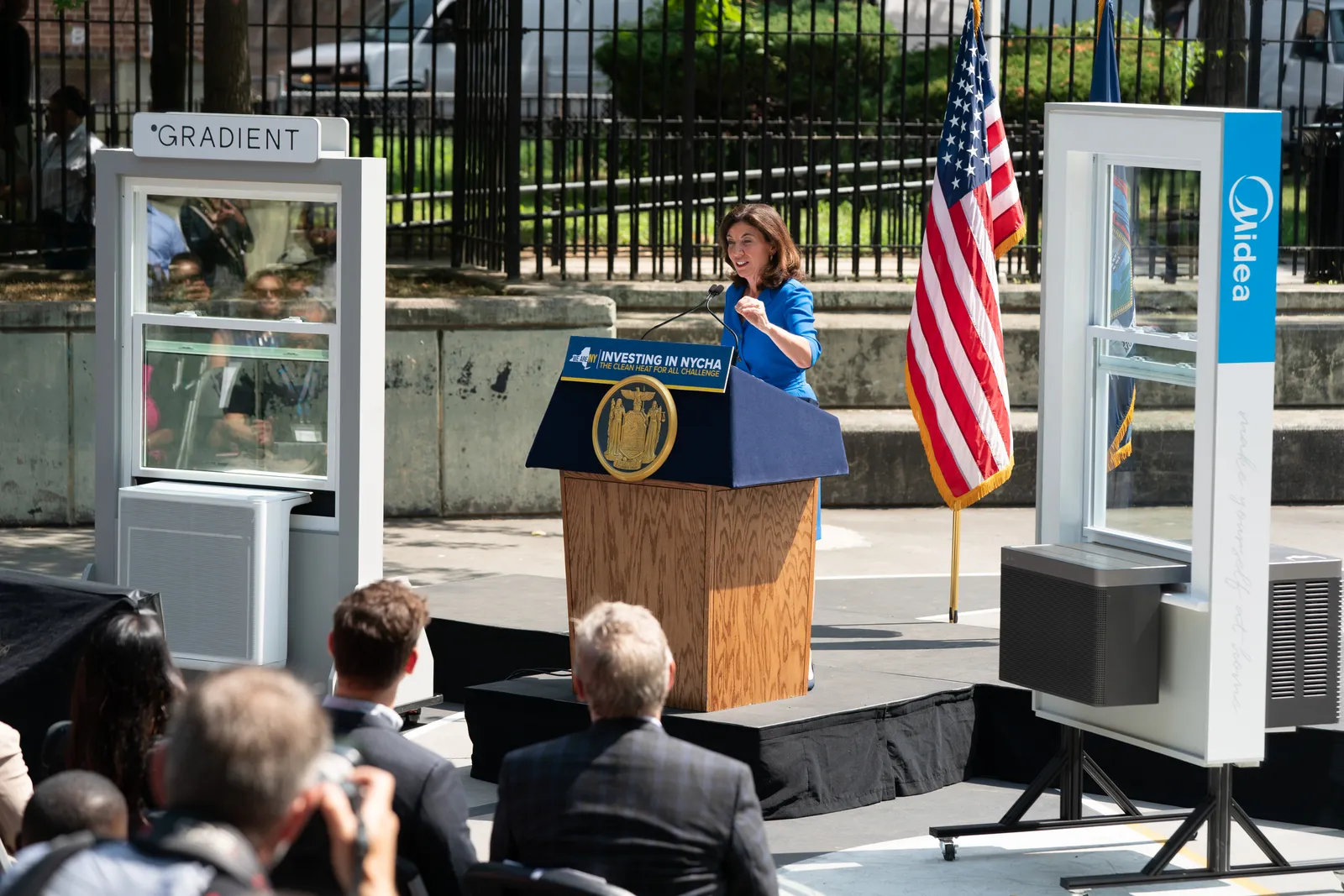
What impact have city or state building decarbonization policies – whether it's “gas bans” or building performance standards or code changes – had on the development and rollout of these products?
Huge impacts.
As a company, we always say [we need to build a business that can be successful] regardless of government regulation. But at the same time, we also want to work with governments because [they can] make sure that it happens in an equitable way. It’s really important to us and it's really important to any solution to climate change. If you don't do it in an equitable way, you get people who aren't affected by heat waves [with] really fancy air conditioners and the people who get hit with heat waves are left with the same crumbling infrastructure. We’re going to lose the climate fight indirectly because the people we're trying to protect are going to be harmed.
And so that's exactly why we really applaud what NYCHA, NYSERDA and NYPA did because they really wrote this program in a way that could help people ... help infrastructure and the climate at the same time.
New York’s Local Law 97, which is not directly a natural gas ban but fines buildings for not decarbonizing, has been a huge help. And I'm certainly not an expert on the best way to do it: a tax on carbon emissions or a fine for carbon emissions like Local Law 97; versus a ban on natural gas in new construction; versus NYCHA/NYPA/NYSERDA doing this challenge for heat pumps; versus the Defense Production Act, which we saw is going to manifest itself [in the Inflation Reduction Act].
All different approaches to governments helping [support heat pumps] — they can all be helpful in their own ways. And we're glad to see governments working on this.
How are concerns about making this transition equitable and affordable being addressed in New York? What could be done elsewhere?
Obviously, the biggest example of how they're being addressed in New York is [through] this challenge ... It’s not just [the government] purchasing this system for the buildings that are going to be most affected by climate disasters, it is also the fact that they're literally pulling the market forward by putting this challenge out.
The other piece of this is going to be energy bills ... As you switch to electrify heating, figuring out how the costs aren’t overly burdensome to the consumer is going to be very important.
From a big picture, the real cost of HVAC is not just the hardware itself ... It’s incredibly hard to predict or have the tools to say, ‘if I buy a more efficient, more reliable system, it's going to pay itself back in three years’ or five years or whatever it is. So I think that there needs to be solutions, either in the form of government incentives or in the form of HVAC-as-a-service, comfort-as-a-service offerings from businesses like us, kind of like a solar lease did for residential solar. Help consumers make the right economic choice without having to front the cash for it.













